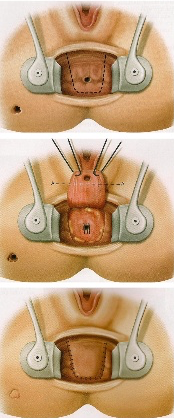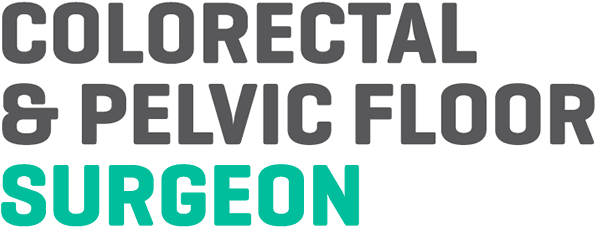- Abscess Incision and Drainage
- Advancement Flap Repair
- Anal Bulking
- Anal Tattooing
- Botulinum Toxin Injection
- Colectomy
- Delorme’s Procedure
- ELAPE Procedure
- Femoral Hernia Repair
- Fistulotomy
- Haemorrhoidectomy
- HALO-RAR Procedure
- Inguinal Hernia Repair
- Intersphincteric APR
- Lateral Internal Sphincterotomy
- Low Anterior Resection
- Pelvic Organ Prolapse
- Perineal Rectosigmoidectomy
- Rectoanal Repair
- Rubber Band Ligation
- Stapled Haemorrhoidopexy
- Stoma Creation
- Stoma Reversal
- Transanal Rectocoele Repair
- Umbilical Hernia Repair
Advancement Flap Repair
Advancement flap repair can be used for two common colorectal conditions, ie, anorectal fistula and anal fissure. In both conditions, the procedure covers the defect, allowing it to heal while conserving anal muscle function and avoiding faecal incontinence. It is used in patients with an anal fistula not amenable to fistulotomy due to the amount of anal muscle involved in the fistula, and to repair an anal fissure in patients who already have weakened pelvic floor and anal muscles, eg, after childbirth, when there has been injury to the anal canal. You will have the opportunity to discuss fully all the risks and benefits of the operation with me before signing your consent form.

Whether used for an anorectal fistula or an anal fissure, advancement flap surgery is performed using an open approach. When used to repair a fistula, the flap is used to cover the internal opening of the abnormal channel and prevent ongoing communication between the anus and the fistula tract. Tissue from the inner lining of the lower rectum (mucosal advancement flap) or from the skin around the anus (anal advancement flap) is used, depending on where the internal opening is. When used to repair an anal fissure, the flap, which is from healthy tissue and rich in blood vessels, aids healing by improving the blood supply at the site of the fissure. The whole procedure takes about 60 minutes to perform.
An advancement flap repair is done under general anaesthesia, so you will be asleep and feel no pain. You will need to fast from midnight on the night before if your surgery is scheduled for the morning, or from 7 am if it scheduled for the afternoon.
No special bowel preparation is necessary before this procedure, unless you are also having a colonoscopy in the same sitting. You will receive an enema one hour or so before your surgery.
After the operation you will be transferred to the recovery area and then to the ward. You should be able to go home the same day, but sometimes patients may need to stay longer. You should not drive after your surgery, so a friend or relative will need to take you home.
You will be given an injection of local anaesthetic before you leave the operating theatre, but some pain and discomfort is likely when this wears off at around 6 hours after surgery. The discomfort does get better, but may take 6 weeks to resolve completely. It is important to keep your bowel movements soft and regular during this time. To prevent constipation, eat foods high in fibre, and drink plenty of water (6–8 glasses a day). Analgesic medication and laxatives will be given to you to take home. It is best to keep up with these until your bowels are moving and any discomfort is manageable. Laxatives may need to be continued for up to 4 weeks after surgery.
Generally, use water to wash the anus twice a day and after every bowel movement. You can expect minor bleeding after this procedure, and a sanitary towel changed twice daily will help to prevent staining of underwear. It is normal to notice a small amount of bleeding after you have opened your bowels, but if the amount of blood is more than a couple of teaspoons a day, please let my office know.
Patients are usually able to resume all normal activities, including going back to work, 2–4 weeks after surgery. Exactly when patients can resume driving after this type of procedure is determined on a case-by-case basis. This is usually 2 weeks, but may be longer in some people, and will be discussed with you after your surgery. Please let your insurance company know when you have been given the all-clear to resume driving.
The success rate for both types of advancement flap repair is about 60%. Most failures occur as a result of the wound opening and possible development of more pain. If it happens, please let my office know and I will see you at the next clinic.
A follow-up appointment in the clinic will be arranged for 1–2 weeks after your surgery to check that your symptoms have resolved and discuss any further management if necessary. If you have had an anal advancement flap procedure, it is best to avoid sitting on the wound until I have checked it at your follow-up visit.

